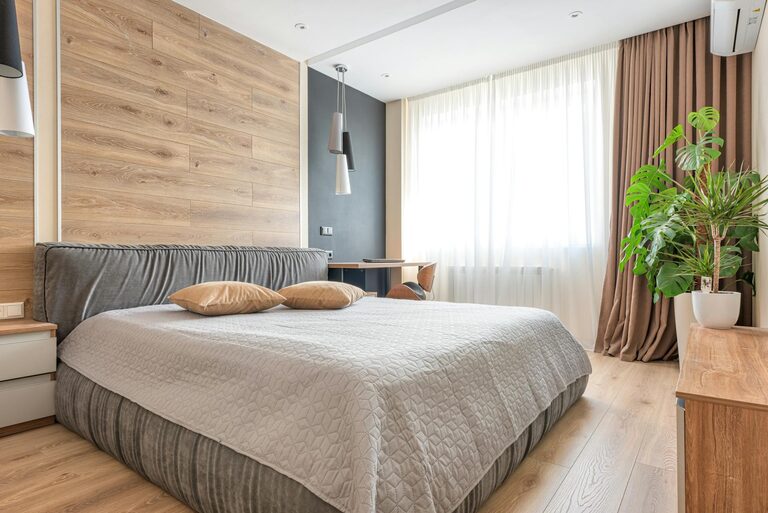Quick Ideas to Brighten a Dark Room and Transform Your Space

A dark room can feel cramped, dull, and uninspiring. Fortunately, there are several easy and budget-friendly ideas to brighten up any dim space and create a welcoming atmosphere. Whether you’re dealing with limited natural light or a room painted in deep shades, a few changes can make a big difference. In this post, we’ll explore practical tips using light, color, mirrors, and more to transform your dark room into a bright, cheerful area you’ll love spending time in.
Why Dark Rooms Feel Less Inviting
Before jumping into solutions, it helps to understand why some rooms feel dark or gloomy. Common causes include:
– Lack of windows or small windows limiting natural light
– Heavy, dark-colored walls or furnishings absorbing light
– Insufficient artificial lighting or poor lighting placement
– Obstructions outside blocking daylight
By addressing these factors, you’ll be able to brighten your space effectively.
Maximize Natural Light
Natural light is the best and most flattering light source. Here’s how to bring more daylight indoors:
1. Use Sheer Curtains or None at All
Heavy drapes block sunlight. Replace them with sheer, light-colored curtains or skip window treatments when privacy isn’t a concern. This allows more light to flow into the room freely.
2. Clean Your Windows
Dirty windows can reduce incoming light by a surprising amount. Regularly cleaning both inside and outside glass helps maximize brightness.
3. Trim Outside Obstructions
Bushes, trees, or fences that cover windows can restrict daylight. Trim plants or rearrange landscaping to open up the view and let light in.
Choose Lighter Colors
Color plays a major role in how light or dark a room feels.
4. Paint Walls in Light Shades
Opt for soft whites, pale grays, or pastel tones that reflect light rather than absorbing it. Lighter walls instantly brighten up any space and make it feel larger.
5. Pick Light-Colored Furniture and Accessories
Furniture and decor in bright or neutral colors contribute to an open feel. Avoid bulky pieces in dark hues that can weigh the room down.
6. Use Glossy or Semi-Gloss Paint Finishes
Paint finishes that reflect light more, such as semi-gloss, can make walls seem brighter compared to matte finishes.
Improve Artificial Lighting
When natural light is limited, good lighting fixtures become essential.
7. Layer Your Lighting
Use a combination of:
– Ambient lighting: Overhead lights like ceiling fixtures or recessed lighting provide general illumination.
– Task lighting: Table lamps, floor lamps, or under-cabinet lights support specific activities like reading or cooking.
– Accent lighting: Small spotlights or wall sconces highlight artwork or architectural features and add dimension.
Layering these types creates a well-lit environment with depth.
8. Choose Bulbs with High Lumens and Warm White Color
Select LED bulbs that offer plenty of brightness (measured in lumens) but emit a warm white glow (around 2700K–3000K) for a cozy and inviting feeling.
9. Place Lights Strategically
Focus lights near dark corners or areas where shadows form. Placing lamps near reflective surfaces like mirrors or light-colored walls helps bounce light around the room.
Use Mirrors and Reflective Surfaces
Mirrors and shiny objects act like natural light boosters.
10. Hang a Large Mirror Opposite a Window
Mirrors reflect daylight into darker areas, increasing brightness. Position a sizable mirror across from a window for maximum effect.
11. Incorporate Reflective Decor
Accessories like metallic picture frames, glass vases, or glossy furniture finishes help scatter light and add sparkle to your room.
Declutter and Organize
A cluttered space can feel heavier and darker.
12. Keep Surfaces Tidy
Clear countertops, shelves, and tables to avoid shadows and visually open the room.
13. Use Minimalist Furnishings
Select pieces with clean lines and avoid overcrowding the space, allowing light and air to flow freely.
Add Plants Wisely
Plants bring life and freshness but choose them thoughtfully.
14. Select Light-Loving Indoor Plants
Some plants thrive in lower light, but those that prefer bright areas will encourage you to keep windows clear and maintain good lighting.
15. Position Plants Near Light Sources
Place greenery near natural or artificial light to create lively focal points without blocking illumination.
Additional Creative Tips
16. Use Light-Colored Rugs
Adding rugs in pale shades brightens floors, especially in rooms with dark wood or carpets.
17. Paint or Wallpaper the Ceiling White
A bright ceiling reflects more light downward, enhancing overall room brightness.
18. Open Up Room Layout
Whenever possible, rearrange furniture to keep pathways clear and expose windows, allowing better light penetration.
—
Final Thoughts
Brightening a dark room doesn’t require a full renovation or expensive upgrades. Small adjustments like swapping curtains, adding mirrors, improving lighting layers, and using lighter colors can dramatically lift the mood and functionality of your space. Try combining several of these ideas to find what works best for your room’s layout and style. With a little creativity and effort, your dark room can become one of the brightest, most inviting spots in your home. Happy decorating!




